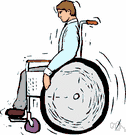palsy
(redirected from palsies)Also found in: Thesaurus, Medical, Encyclopedia.
Related to palsies: papilledema, hydrocephalus
pal·sy
(pôl′zē)n. pl. pal·sies
1. Complete or partial muscle paralysis, often accompanied by loss of sensation and uncontrollable body movements or tremors.
2.
a. A weakening or debilitating influence.
b. An enfeebled condition or debilitated state thought to result from such an influence.
3. A fit of strong emotion marked by the inability to act: "Flaherty dithered in a little palsy of indignation" (Anthony Burgess).
tr.v. pal·sied, pal·sy·ing, pal·sies
1.
a. To paralyze.
b. To deprive of strength.
2. To make helpless, as with fear.
[Middle English palsie, alteration of Old French paralisie, alteration of Latin paralysis; see paralysis.]
American Heritage® Dictionary of the English Language, Fifth Edition. Copyright © 2016 by Houghton Mifflin Harcourt Publishing Company. Published by Houghton Mifflin Harcourt Publishing Company. All rights reserved.
palsy
(ˈpɔːlzɪ) patholn, pl -sies
(Pathology) paralysis, esp of a specified type: cerebral palsy.
vb (tr) , -sies, -sying or -sied
(Pathology) to paralyse
[C13 palesi, from Old French paralisie, from Latin paralysis]
ˈpalsied adj
Collins English Dictionary – Complete and Unabridged, 12th Edition 2014 © HarperCollins Publishers 1991, 1994, 1998, 2000, 2003, 2006, 2007, 2009, 2011, 2014
pal•sy
(ˈpɔl zi)n., pl. -sies, n.
1. any of several conditions characterized by paralysis, as Bell's palsy.
2. any of a variety of atonal muscular conditions characterized by tremors of the body parts or of the entire body.
v.t. 3. to paralyze.
[1250–1300; Middle English, variant of parlesie < Middle French paralisie < Latin paralysis paralysis]
pal′sy•like`, adj.
Random House Kernerman Webster's College Dictionary, © 2010 K Dictionaries Ltd. Copyright 2005, 1997, 1991 by Random House, Inc. All rights reserved.
palsy
Past participle: palsied
Gerund: palsying
| Imperative |
|---|
| palsy |
| palsy |
Collins English Verb Tables © HarperCollins Publishers 2011
ThesaurusAntonymsRelated WordsSynonymsLegend:
Switch to new thesaurus
| Noun | 1. |  palsy - loss of the ability to move a body part palsy - loss of the ability to move a body partalalia - paralysis of the vocal cords resulting in an inability to speak cystoparalysis, cystoplegia - paralysis of the urinary bladder diplegia - paralysis of corresponding parts on both sides of the body Erb-Duchenne paralysis, Erb's palsy - paralysis of the arm resulting from injury to the brachial plexus (usually during childbirth) monoplegia - paralysis of a single limb ophthalmoplegia - paralysis of the motor nerves of the eye disfunction, dysfunction - (medicine) any disturbance in the functioning of an organ or body part or a disturbance in the functioning of a social group; "erectile dysfunction"; "sexual relationship dysfunction" paresis - a slight or partial paralysis paraplegia - paralysis of the lower half of the body (most often as a result of trauma) hemiplegia, unilateral paralysis - paralysis of one side of the body quadriplegia - paralysis of both arms and both legs |
| 2. | palsy - a condition marked by uncontrollable tremor symptom - (medicine) any sensation or change in bodily function that is experienced by a patient and is associated with a particular disease | |
| Verb | 1. | palsy - affect with palsy |
Based on WordNet 3.0, Farlex clipart collection. © 2003-2012 Princeton University, Farlex Inc.
TranslationsSelect a language:
Spanish / Español
Collins Spanish Dictionary - Complete and Unabridged 8th Edition 2005 © William Collins Sons & Co. Ltd. 1971, 1988 © HarperCollins Publishers 1992, 1993, 1996, 1997, 2000, 2003, 2005
pal·sy
n. perlesía, parálisis, pédida temporal o permanente de la sensación, de la función o control de movimiento de una parte del cuerpo;
cerebral ___ → ___ cerebral, parálisis parcial y falta de coordinación muscular debida a una lesión cerebral congénita.
English-Spanish Medical Dictionary © Farlex 2012
palsy
n (pl -sies) parálisis f; Bell’s — parálisis de Bell; cerebral — parálisis cerebral; facial — parálisis facialEnglish-Spanish/Spanish-English Medical Dictionary Copyright © 2006 by The McGraw-Hill Companies, Inc. All rights reserved.